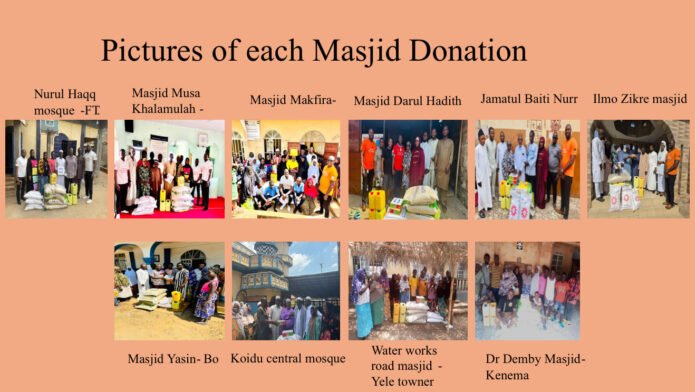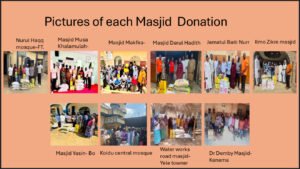By Amin Kef (Ranger)
The Director General of the Sierra Leone Civil Aviation Authority (SLCAA), Madam Musayeroh Barrie, played a pivotal role in fostering enhanced aviation cooperation between Sierra Leone and Egypt during President Julius Maada Bio’s three-day state visit to Cairo. The visit, which commenced on March 26, 2025, underscored the commitment of both nations to strengthening diplomatic and economic ties.
As part of the high-level delegation accompanying President Bio, Madam Musayeroh Barrie engaged in a series of strategic discussions with key stakeholders in Egypt’s aviation sector. She met with Captain Sameh El Hefny, President of the Egyptian Civil Aviation Authority, and Amr Adawy, Head of Commercial for EgyptAir, to explore avenues for collaboration between the two nations.
One of the key highlights of the meeting was the ongoing negotiation for direct flights between Freetown and Cairo, a move anticipated to bolster trade, tourism and economic activities between the two countries. Speaking on the significance of these discussions, Madam Musayeroh Barrie stated, “We are in the advanced stages of negotiations with EgyptAir for direct flights between Freetown and Cairo. This initiative will not only enhance connectivity but also create significant opportunities for trade and tourism.”
The meeting was described as productive and promising, with both parties expressing enthusiasm for deepening aviation cooperation. Discussions also touched on knowledge-sharing, training opportunities for Sierra Leonean aviation professionals and potential joint projects aimed at strengthening the regulatory and operational capacities of the sector.
Madam Musayeroh Barrie’s participation in these discussions reflects her steadfast commitment to modernizing Sierra Leone’s aviation sector. Since her appointment by President Bio, she has spearheaded critical reforms that have significantly improved the country’s air transport infrastructure. Under her leadership, SLCAA has introduced modernized systems to enhance operational efficiency, improved safety standards and upgraded regulatory frameworks to align with international aviation norms.
Her efforts have also paved the way for stronger partnerships with international aviation entities, with Egypt emerging as a key ally. The recent developments between Sierra Leone and Egypt exemplify the growing bilateral relations in the aviation sector, with increased technical exchange, aviation training programs and joint air transport projects on the horizon.
Madam Musayeroh Barrie also played a welcoming role upon President Bio’s arrival in Cairo, further highlighting the importance of her engagement in this landmark visit. The strengthening of aviation ties aligns with President Bio’s broader vision of positioning Sierra Leone as a competitive player in regional and international air transport, ultimately attracting foreign investment and boosting the nation’s global connectivity.
As Sierra Leone continues to make strides in the aviation sector, the collaborative efforts with Egypt serve as a testament to the country’s commitment to fostering international partnerships, driving economic growth and advancing its aviation industry to new heights.













